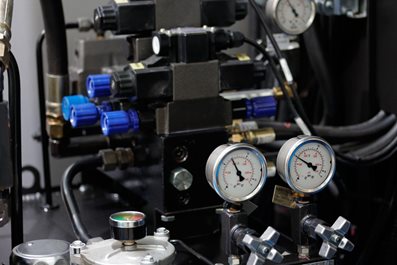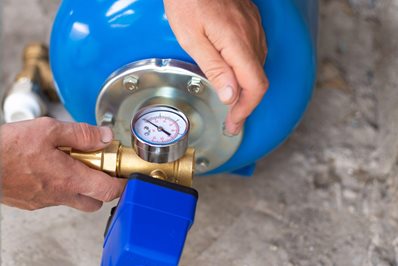Hydraulic Pumps and Motors Over-Pressurization Effects

The over-pressurisation of hydraulic pumps and motors can have severe negative effects on your hydraulic system. Hydraulic pumps are designed to function at specific pressure levels and flow rates.
Hydraulic motors are also designed to work within specific parameters. Therefore, it is essential to ensure that recommended continuous flows and pressures are not exceeded any more than specified by the manufacturer. Forcing hydraulic components to work outside these parameters can harm your equipment and possibly bring about total system failure.
When there is an increase beyond the pump design maximum pressure in the hydraulic system, it will result in pump over-pressurisation. If this happens, it can also have a domino effect on other hydraulic parts and components within the system.
The Negative Effects of Over Pressure on Hydraulic Systems
1. Mechanical Hydraulic System Damage
Over-pressurisation adds increased pressure on motors, cylinders, hoses, and other system components. This can lead to an increased rate of wear and tear, leading them to fail prematurely. The excess pressure can also cause buckling of smaller metal parts and components, such as cylinder rods, leading to catastrophic system failure.
2. Hydraulic System Parts Separation
Certain parts in the system can begin to come apart because of the excessive pressure. O-rings, hose connections, pumps, and other parts may burst.
For example, hydraulic gear pump front and rear covers can distort or the bolts holding the pumps together can stretch or strip the threads from too much pressure in the system. High pressure due to excessive load on orbital motors can cause them to seize, causing damage to the spools and or causing internal shaft breakage.
3. Reduced Hydraulic Fluid Lubrication
Pumps, motors, and other moving components rely on the lubrication qualities of the hydraulic fluid to ensure proper functionality, due to the very tight clearances between moving parts. Increased pressure on the rotating component in question will tend to throw shafts slightly out of normal balance, reducing the clearance on one side of the shaft whilst increasing it on the load side.
This has the twin effect of encouraging leakage from the pressure side whilst also causing metal to metal contact on the low pressure side, as there is insufficient clearance for lubrication leading to hydraulic leaks, component abrasion, boundary lubrication, and other undesirable effects. This results in premature wear and even system failure.
How to Prevent Over Pressure on Hydraulic Systems
The best way to prevent over-pressurisation effects is to avoid operating a hydraulic system beyond its recommended pressure level and to perform regular hydraulic system maintenance, ensuring maximum pressure levels are properly maintained. If a system is regularly over-pressurised, it is an indication that it is not designed correctly to match the operational requirements, and it may be necessary to use larger capacity cylinders, motors, or pumps.
To prevent over-pressurisation, consider a few simple maintenance tips:
Perform routine check-ups.
Simply inspecting your hydraulic pressure pumps, switches, control valves, and other components on a routine basis can prevent many problems before they lead to serious damage.
Check pressure relief settings.
This is especially important when installing a new pump. Replacing a worn-out pump with a larger version often results in more flow than the hydraulic system is designed to handle.
Make sure case drain lines return direct to tank.
Pump and motor case drain lines should return directly to the tank via lines that exert as close to zero back pressure. If using a return filter, ensure that it is oversized so that there is no back pressure being exerted by it.
It is probably best, unless the pressure on the case drain is monitored very regularly, to return the case drain lines directly to the tank without a filter, as the damage that can be caused due to excessive case drain pressure is probably greater than the amount of potential contamination that might be caught by a filter in this case.

Replacement Hydraulic System Parts and Components
When you have hydraulic motor overpressure effects or hydraulic pump overpressure effects, you will need replacement hydraulic system parts and components. You also need to address the cause of the overpressurisation to avoid damaging your new parts and components.
To purchase high-quality hydraulic pumps and motors and related hydraulic system components, or if you need help designing a customised pump and motor configuration, please feel free to contact White House Products, Ltd. at +44 (0) 1475 742500 today!
Back to blog posts